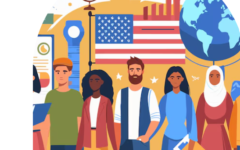Elites and Globalization
3 April 2025 2025-04-03 14:51Elites and Globalization

Elites and Globalization
Globalization is characterized by the emergence of globalized elites—highly mobile and highly qualified individuals from upper social classes—who leverage cultural, social, and financial resources to consolidate their power. Despite their global reach, these elites maintain strong ties to their countries of origin and often originate from exclusive educational and social networks. Their influence is exerted through multinational corporations, financial institutions, and transnational networks, shaping global economic policies and exacerbating inequalities. Multinational corporations promote Western economic models, while financial institutions, such as the International Monetary Fund (IMF), shape economic policies by advancing neoliberal agendas, often at the expense of local economies. The growing influence of these elites poses significant challenges to state sovereignty and democracy, highlighting the need to rethink globalization as a more equitable, inclusive, and sustainable process that prevents the concentration of power within a small elite. This article examines the formation of globalized elites and their impact on the globalization process. To achieve this, we adopt a descriptive-analytical approach based on a literature review and an in-depth examination of key theoretical frameworks addressing the relationship between elites and globalization. Our findings confirm the substantial influence of elites on globalization and suggest that their role poses a threat to democracy and state sovereignty, paving the way for further research on this issue.
Dr. Mohamed Jebbour
Related Posts
Search
Categories
Popular Tags
Popular tags






